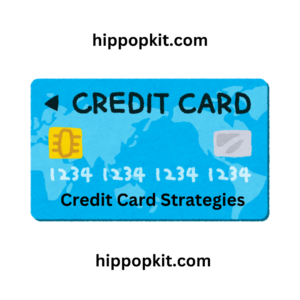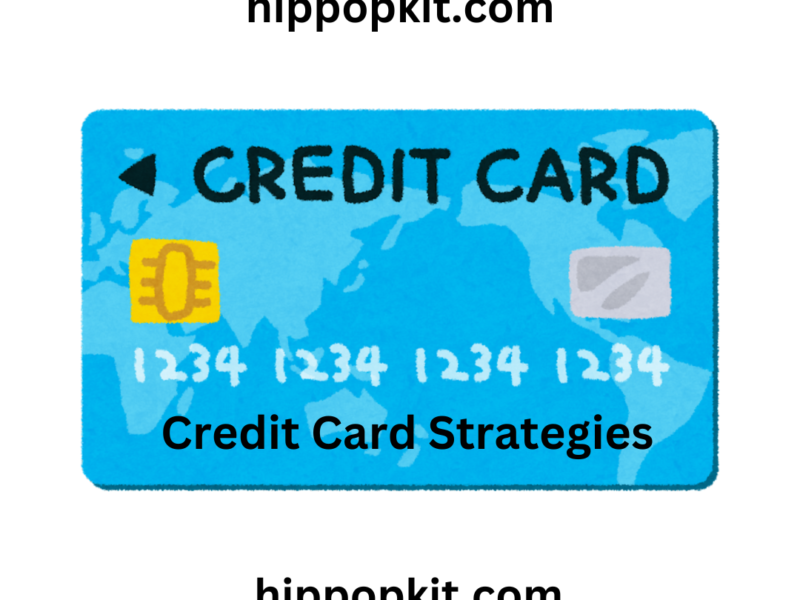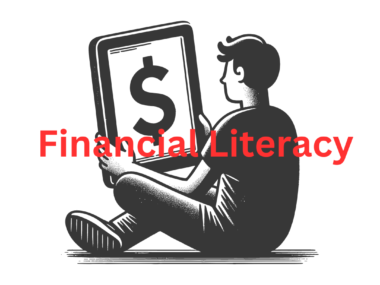Credit Card Strategies: Rewards Programs, Avoiding Debt Traps, and Building Credit
Credit card have become ubiquitous in modern financial transactions, offering convenience and a range of benefits. However, without a strategic approach, credit cards can lead to financial pitfalls.
This comprehensive guide aims to explore and delve deeply into effective credit card strategies, covering the optimization of rewards programs, the importance of avoiding debt traps, and the nuances of building and maintaining a robust credit score.

Rewards Programs: Maximizing Benefits
Credit card rewards programs are designed to incentivize spending and loyalty. There are different types of rewards, including cash back, travel points, and merchandise. Understanding and maximizing these programs is key to extracting the most value from your credit card.
- Cash Back Rewards: Many credit cards offer cash back on purchases. It is essential to choose a card that aligns with your spending habits. Some cards offer flat-rate cash back on all purchases, while others provide higher rewards for specific categories like groceries, gas, or dining.
- Travel Rewards: Travel credit cards often provide points or miles that can be redeemed for flights, hotel stays, or other travel-related expenses. Consider the flexibility of redemption options, the earning rate, and any associated travel perks like airport lounge access.
- Points and Miles: Some cards offer points or miles that can be used for a variety of rewards, including merchandise, gift cards, or even cash back. Understanding the value of these points and choosing a card that aligns with your preferences is crucial.
- Introductory Bonuses: Many credit cards offer sign-up bonuses to attract new customers. These bonuses can significantly boost your rewards in the initial months. However, be mindful of the terms and conditions, including any minimum spending requirements.
Avoiding Debt Traps: Responsible Credit Card Use
While rewards are enticing, it is crucial to avoid falling into debt traps. Responsible credit card use involves managing your spending, paying bills on time, and understanding the potential pitfalls.
- Budgeting: Create a realistic budget that outlines your monthly expenses and income. Stick to this budget to avoid overspending and accumulating debt. Monitoring your spending regularly can help identify areas where adjustments are needed.
- Paying in Full: Ideally, aim to pay your credit card balance in full each month. This prevents the accrual of interest charges. If paying in full is challenging, strive to pay more than the minimum required amount to reduce the overall interest paid.
- Interest Rates: Be aware of your credit card’s interest rates. If you carry a balance, interest charges can accumulate quickly. Consider transferring balances to cards with lower interest rates or taking advantage of 0% introductory APR offers if needed.
- Emergency Fund: Having an emergency fund can provide a financial safety net, reducing the reliance on credit cards for unexpected expenses. This can prevent the accumulation of high-interest debt during challenging times.
Building Credit: Establishing and Improving Creditworthiness
Credit cards play a crucial role in building and maintaining a positive credit history. A good credit score opens doors to favorable financial opportunities, including lower interest rates on loans and better credit card offers.
- Timely Payments: Payment history is a significant factor in your credit score. Pay your credit card bills on time to establish a positive payment history. Consider setting up automatic payments or reminders to ensure timely payments.
- Credit Utilization: The ratio of your credit card balances to your credit limits, known as credit utilization, influences your credit score. Aim to keep your credit utilization below 30% to demonstrate responsible credit management.
- Diversification of Credit: Having a mix of credit types, such as credit cards, installment loans, and mortgages, can positively affect your credit score. However, only open new credit accounts when necessary, and avoid applying for multiple credit cards in a short period.
- Regular Monitoring: Check your credit report regularly for inaccuracies or fraudulent activities. Monitoring your credit allows you to address any issues promptly and maintain a healthy credit profile.
Conclusion
In conclusion, credit cards can be powerful financial tools when used wisely. By strategically navigating rewards programs, avoiding debt traps, and building credit responsibly, individuals can maximize the benefits of credit cards while safeguarding their financial well-being. It is essential to stay informed, make informed decisions, and adapt strategies as financial circumstances evolve.






